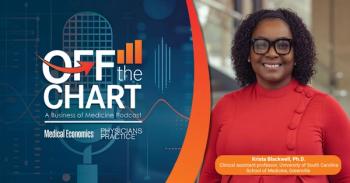
The true value of medical missions
A mission to Guatemala provides insight on the PA profession and introspection on what it means to work in healthcare.
I have been blogging for Physicians Practice since 2011. I write about a wide variety of interests (I hope) to the physician profession. My favorite topics are EHRs and, of course, physician assistant practice and what physicians should know about PAs and their role on the healthcare team.
This past week, I have been as far removed from the U.S. healthcare system as one can get in the world. I am with the HELPS International Bakersfield surgical team in Cobán, Guatemala. This is my third annual mission with HELPS, and the second trip to Cobán. We completed hundreds of surgeries and procedures and saw thousands of clinical patients onsite and in outreach to remote villages.
Keep in mind that we have no diagnostics aside from mainly ultrasounds and MRI / CT scans that patients bring with them. There is no blood bank. The only resources and supplies that we have at our disposal are the ones that we bring with us. The “heavy” equipment (OR tables, anesthesia machines, monitors, kitchen equipment, furniture, racks, etc.) reside permanently in Guatemala City, and is brought to the site and set up by the HELPS advance team.
The team itself brings the consumables (gowns, gloves, medications, sutures, etc.) in scores of “dive bags” that have to be checked by the team as extra luggage. Every member of the team pays their own way to live in a barracks situation, eat cafeteria food (which was great by the way), and endure plumbing that can only be described as “interesting.”
We travel all day Saturday and Sunday, and then furiously unpack and set up onsite Sunday night, to begin screening surgical patients late Sunday to begin major surgery and minor procedures first thing Monday morning. By Monday morning, we have created a fully functional field hospital with pre-op, five ORs (which this year and last were all in the same room, and adjacent procedure room (That I staffed most of time when not doing main OR procedures and first assist), a post-anesthesia care unit, and a small observation unit for overnight stays.
One advancement this year is that Stryker donated a laparoscopic set up, and we were able to do all of the cholecystectomies laparoscopically, eliminating the need for overnight observation. This was a huge positive shift in our operation.
For me as a PA, and for the NPs, it is great to work in an environment where I am not judged by my license, or constrained by state regulation, but by my training, experience, and knowledge. I have worked in plastics and reconstructive surgery for nine years. It is the highlight of my year each time I am on mission to practice at the very top of my training, experience, and scope of practice, and be respected by all the members of the surgical team beyond my status as a PA. This is what
The people of Guatemala are simply amazing. They come by the thousands to a mission site, with hope in their eyes and prayers in their hearts that we somehow, someway will be able to help their physical conditions, and alleviate their suffering. All too often, we have to turn away people that have problems just too complex to help due to the limitations of the team.
That said, we helped hundreds. We changed lives. And, many times, the lives that we changed the most were our own. No one can go away to a place like Cobán, or Tejutla in Guatemala and not come away changed forever in a way that you will never forget. In our great United States of America, we take for granted that which the majority of the world has never experienced. Great healthcare, clean water, education, public health infrastructure, community infrastructure, etc.
So, today, we are packing, decompressing, and taking stock of the things that went well, and the things that didn’t, so that we can improve of operation for next year. There are always key long-term volunteers that mentor and guide the many rookies who are part of every team.
One thing always remains a constant, and that is each member of the team is a selfless, sacrificing individual who is here for the right reasons and considers being a member of the team a privilege. Every American should go on mission once in their lives to the third world.
Mark Twain said it best:
“Travel is fatal to prejudice, bigotry, and narrow-mindedness, and many of our people need it sorely on these accounts. Broad, wholesome, charitable views of men and things cannot be acquired by vegetating in one little corner of the earth all one's lifetime.”
Newsletter
Optimize your practice with the Physicians Practice newsletter, offering management pearls, leadership tips, and business strategies tailored for practice administrators and physicians of any specialty.









